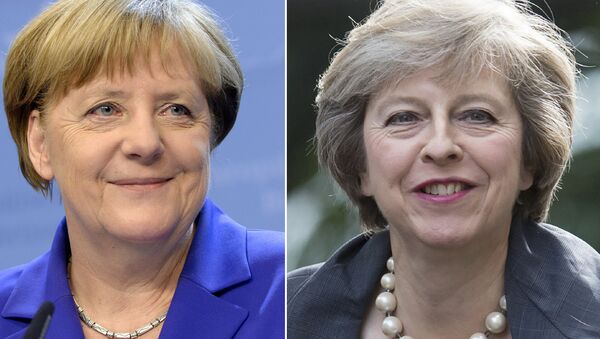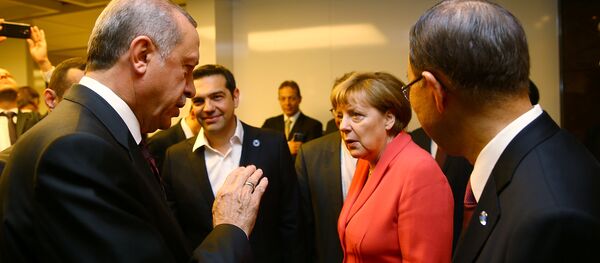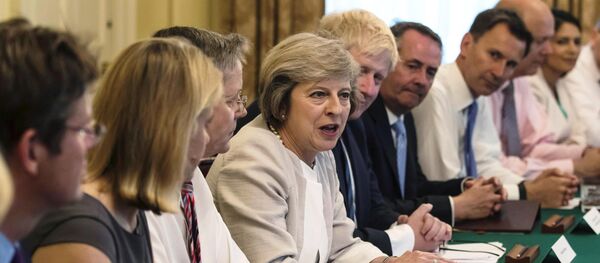Merkel is already facing two crises: the European migrant crisis and the Eurozone troubles. On migrants, she has seen Schengen ripped apart as country after country closed their borders to stem the flow of migrants coming to Europe.
PM Theresa May will make her first visits to Europe on Wednesday & Thursday. Bilaterals with Chancellor Merkel & President @fhollande
— No. 10 Press Office (@Number10press) July 18, 2016
In Greece and Italy, plans to relocate 160,000 migrants to other EU member states have so far only seen 3,119 moved (as of July 18) because of opposition to migrants being allocated to countries on a quota basis.
Worse still, the deal brokered by Merkel with Turkey to relocate "irregular" migrants — those refused asylum in Greece — back to Turkey has hit the buffers.
The deal included the acceleration of Turkey's accession into the EU, but the recent attempted coup and Ankara's reaction to it — including the removal of countless members of the judiciary and the threat to reimpose capital punishment — is making that deal look increasingly unlikely to be fulfilled.
In the Eurozone, Merkel was at pains to prevent Greece crashing out of the single currency, by imposing deeply unpopular austerity measures, including increasing the tax base and major reforms to the state pension scheme — both of which are deeply unpopular in Greece.
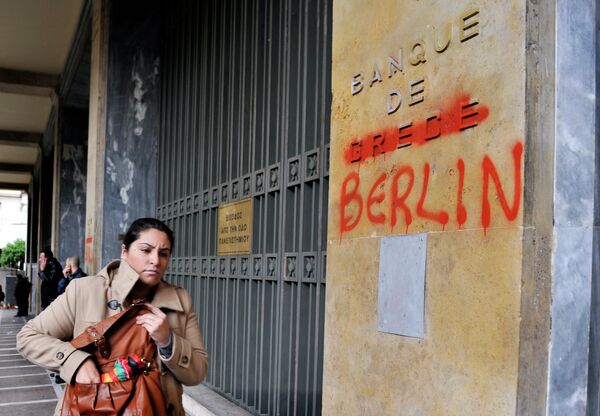
Meanwhile, Spain and Portugal are set to be fined for deficit breaches as the Mediterranean Eurozone struggles to maintain the same strict fiscal targets as north European members.
Told PM @Theresa_May today that we need an orderly, calm #Brexit, something like a "velvet divorce"
— Donald Tusk (@eucopresident) 19 July 2016
Now Merkel has another major headache: Brexit. She will meet May for dinner in Berlin and impress on the British Prime Minister that there is already enough instability in Europe without Britain causing more.
Immigration
Both May and Merkel have immigration on their agendas, but for totally differing reasons. The Brexit referendum was fought largely on the grounds that the UK wanted to control the level of immigration in Britain and that remains high on the public agenda. However, Merkel — despite the current failure to agree a common EU immigration policy — will fight for the freedom of movement of people — a fundamental tenet of the EU.
Ahead of her meeting with Merkel, May said:
"I do not underestimate the challenge of negotiating our exit from the European Union and I firmly believe that being able to talk frankly and openly about the issues we face will be an important part of a successful negotiation."
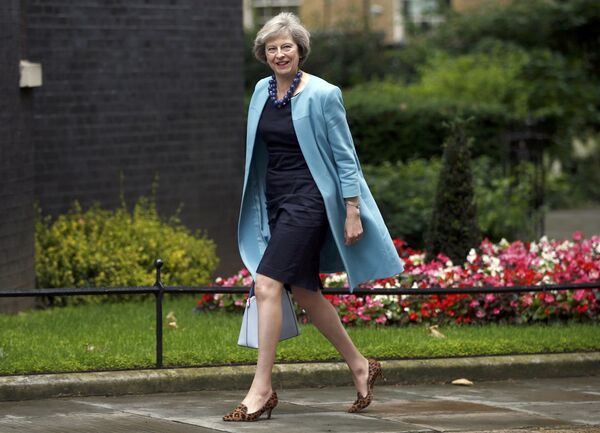
"I also want to deliver a very clear message about the importance we attach to our bilateral relationship with our European partners, not just now but also when we have left the European Union," May said.
The fact that May has chosen Berlin as her fist port of call is significant. If the two women can nurture a special relationship, it will set the tone for the Brexit negotiations. If they cannot reach agreement on the free movement of EU citizens, there may be trouble ahead.

